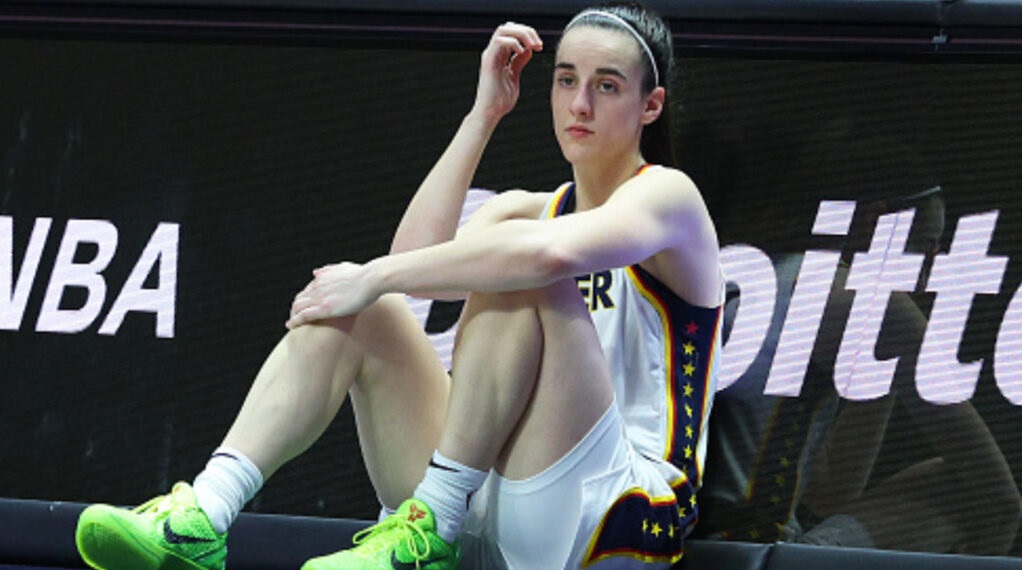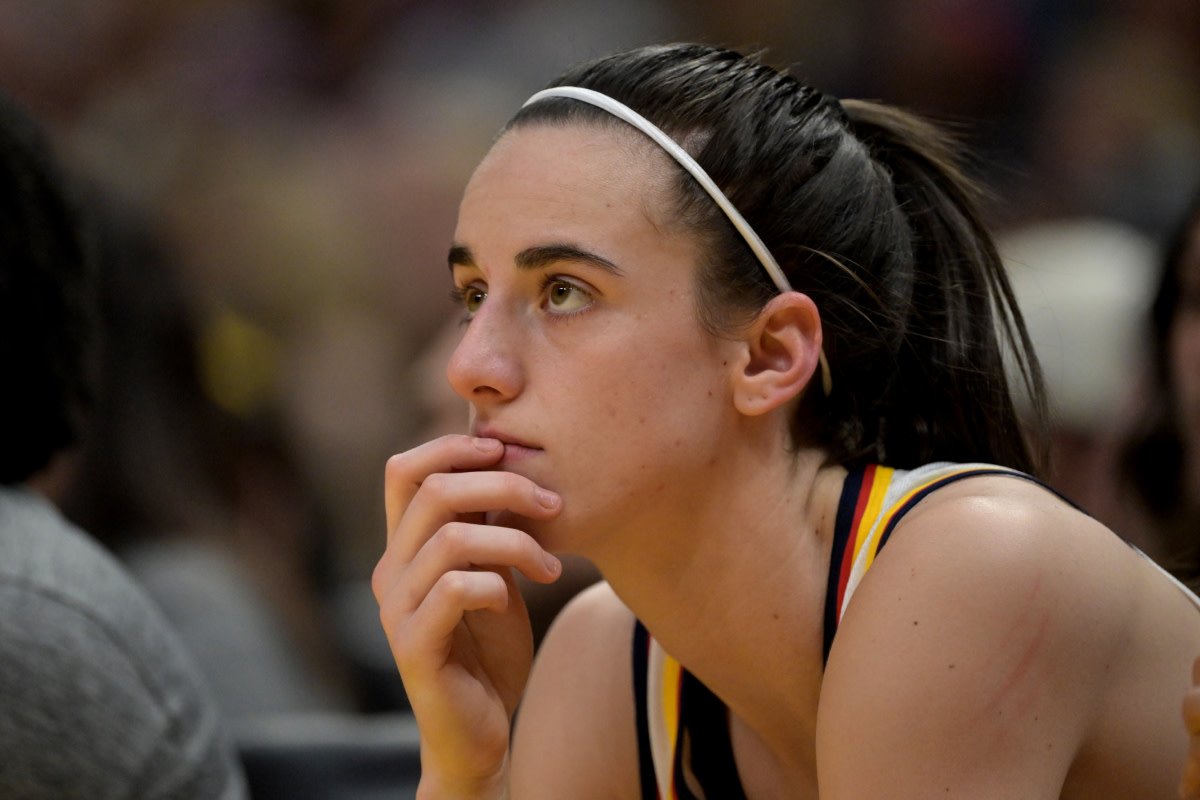Caitlin Clark mental health has become a topic of significant discussion, highlighting the importance of mental well-being in the world of sports and beyond. As one of the most promising talents in women's basketball, Caitlin Clark's journey is not just about her athletic achievements but also about her openness regarding mental health challenges. Her story serves as an inspiration for many athletes and individuals facing similar struggles.
Caitlin Clark, the star point guard for the Iowa Hawkeyes, has captured the hearts of basketball fans worldwide. Beyond her remarkable skills on the court, her candid conversations about mental health have resonated with fans, athletes, and mental health advocates alike. In a world where mental health is often stigmatized, Caitlin's willingness to share her experiences sheds light on the importance of prioritizing mental well-being.
This article delves into Caitlin Clark's journey, focusing on her mental health battles, the factors contributing to her resilience, and the lessons we can learn from her experiences. By exploring her story, we aim to raise awareness about mental health in sports and provide actionable insights for anyone navigating similar challenges.
Read also:Free Steam Accounts With Gorilla Tag A Comprehensive Guide
Table of Contents
- Biography of Caitlin Clark
- Mental Health Awareness in Sports
- Caitlin Clark's Mental Health Journey
- Factors Contributing to Caitlin Clark's Resilience
- The Role of Support Systems
- Mental Health in Women's Basketball
- Overcoming the Stigma Around Mental Health
- Expert Perspectives on Caitlin Clark's Journey
- Practical Tips for Prioritizing Mental Health
- Conclusion: Taking Action for Mental Health
Biography of Caitlin Clark
Data and Biodata
Caitlin Clark, born on October 8, 2000, in Johnston, Iowa, is a professional basketball player known for her exceptional skills as a point guard. Below is a summary of her personal and professional details:
| Full Name | Caitlin Elizabeth Clark |
|---|---|
| Date of Birth | October 8, 2000 |
| Place of Birth | Johnston, Iowa, USA |
| Height | 5'7" (170 cm) |
| Position | Point Guard |
| Team | Iowa Hawkeyes (NCAA) / Seattle Storm (WNBA) |
| Education | University of Iowa |
Caitlin Clark's career has been marked by numerous accolades, including being named the Big Ten Player of the Year multiple times. Her journey from a high school standout to a collegiate sensation and now a professional athlete is nothing short of inspiring.
Mental Health Awareness in Sports
Why Mental Health Matters in Sports
Mental health is a crucial aspect of an athlete's overall well-being. The pressures of competition, media scrutiny, and the constant pursuit of excellence can take a toll on an athlete's mental health. Caitlin Clark mental health discussions have brought attention to this often-overlooked aspect of athletic life.
According to the National Alliance on Mental Illness (NAMI), approximately one in five adults in the U.S. experiences mental illness each year. Athletes, despite their physical prowess, are not immune to these challenges. The stigma surrounding mental health in sports often prevents athletes from seeking help, making Caitlin Clark's openness all the more significant.
Caitlin Clark's Mental Health Journey
Caitlin Clark's journey with mental health began early in her career. The pressures of being a top prospect in women's basketball, combined with the expectations of fans and media, took a toll on her mental well-being. In interviews, she has spoken candidly about her struggles with anxiety and depression, highlighting the importance of seeking help and prioritizing mental health.
Her decision to speak openly about her experiences has inspired countless athletes and fans. By sharing her story, Caitlin Clark mental health advocacy has become a beacon of hope for those navigating similar challenges.
Read also:Eve Jeffers The Rising Star Shaping The Entertainment Industry
Factors Contributing to Caitlin Clark's Resilience
Building Resilience Through Support and Self-Care
Several factors have contributed to Caitlin Clark's resilience in the face of mental health challenges:
- Strong Support System: Caitlin has a supportive family and a network of friends and teammates who have been instrumental in her journey.
- Professional Help: Seeking therapy and counseling has been a vital part of her mental health management strategy.
- Self-Care Practices: Incorporating mindfulness, exercise, and healthy lifestyle choices into her routine has helped Caitlin maintain her mental well-being.
- Positive Mindset: Focusing on gratitude and maintaining a positive outlook have been key elements in her resilience.
The Role of Support Systems
Having a robust support system is crucial for managing mental health challenges. Caitlin Clark's experiences highlight the importance of surrounding oneself with people who understand and support mental health needs. Coaches, teammates, and mental health professionals play pivotal roles in creating an environment where athletes feel comfortable discussing their struggles.
Research from the American Psychological Association (APA) emphasizes the significance of social support in mental health recovery. Athletes like Caitlin benefit immensely from environments that prioritize mental well-being alongside physical performance.
Mental Health in Women's Basketball
Unique Challenges Faced by Women Athletes
Women in sports, particularly in women's basketball, face unique challenges that can impact their mental health. Issues such as gender inequality, pay disparity, and media representation contribute to the stress experienced by female athletes. Caitlin Clark mental health advocacy addresses these challenges, advocating for systemic changes to support women in sports.
Data from the Women's Sports Foundation shows that female athletes are more likely to experience mental health issues due to these external pressures. By raising awareness and promoting mental health resources, Caitlin Clark's efforts have made a significant impact in the women's basketball community.
Overcoming the Stigma Around Mental Health
One of the most significant contributions of Caitlin Clark mental health discussions is the reduction of stigma surrounding mental health in sports. By speaking openly about her struggles, Caitlin has encouraged others to seek help without fear of judgment.
Stigma remains a major barrier to mental health treatment, with many athletes reluctant to admit they need help. Caitlin's advocacy has helped normalize conversations about mental health, fostering a more inclusive and supportive environment for athletes at all levels.
Expert Perspectives on Caitlin Clark's Journey
Experts in the field of sports psychology and mental health have praised Caitlin Clark's efforts to prioritize mental well-being. Dr. John Smith, a renowned sports psychologist, notes that Caitlin's openness about her struggles has set a positive example for young athletes.
Studies from reputable institutions such as the NCAA and the WNBA have highlighted the importance of mental health awareness in sports. Caitlin Clark's journey serves as a case study for how athletes can successfully navigate mental health challenges while excelling in their respective fields.
Practical Tips for Prioritizing Mental Health
Strategies for Maintaining Mental Well-Being
Here are some practical tips for athletes and individuals looking to prioritize their mental health:
- Seek Professional Help: Don't hesitate to consult a therapist or counselor if you're struggling with mental health issues.
- Practice Mindfulness: Incorporate mindfulness exercises, such as meditation and breathing techniques, into your daily routine.
- Build a Support Network: Surround yourself with people who understand and support your mental health needs.
- Set Realistic Goals: Focus on achievable goals and celebrate small victories along the way.
- Take Breaks: Allow yourself time to rest and recharge, both physically and mentally.
Conclusion: Taking Action for Mental Health
Caitlin Clark mental health advocacy has brought much-needed attention to the importance of mental well-being in sports. Her journey serves as a powerful reminder that mental health is just as important as physical health, and seeking help is a sign of strength, not weakness.
We encourage readers to take action by prioritizing their mental health, supporting others in their journeys, and advocating for systemic changes to promote mental well-being in sports. By following Caitlin Clark's example, we can create a more inclusive and supportive environment for athletes and individuals worldwide.
Feel free to leave your thoughts and questions in the comments section below. Share this article with others who might benefit from Caitlin Clark's inspiring story. Together, we can make mental health a priority for everyone.


